
IT'S A PRETTY PASTIME that saw boost in a significant popularity in the early days of the pandemic and growing cut-flower gardens is poised to stay. To become a cutting-garden pro, follow the advice from a Midwest based master. Jamie Rohda is the owner of Harvest Home Flowers in Waverly, Nebraska, a farm growing specialty cut-flowers for nearly 25 years.
According to Jamie, "A cut-flower garden is a garden not meant for looks but for harvesting. Whereas a flower garden meant for the landscape is laid out for the benefit of being viewed, a cut-flower garden's purpose is to provide the owner with a continuing array of flowers to be harvested and used for floral display." That's not to say a cut-flower garden can't be aesthetically appealing; it's just not the primary intent of this type of space. To keep this goal in mind, Jamie finds that it's best, if possible, to situate a cut-flower garden where it is the least visible, so that the temptation to leave it for viewing is not as great.
Picking the Plants
Before choosing flowers, Jamie suggests that you ask yourself a series of questions to set yourself up for success:
■ What amount of sun does the garden get? Will it be best to plant sun-loving flowers, or will this be a partially shaded garden?
■ What are your personal likes and dislikes?
■ What skills do Is this your first time planting a garden, or do you already have some you have? growing experience?
■ How much growing space do you have?
■ What climate zone are you in?
This story is from the April/May 2023 edition of Birds & Blooms.
Start your 7-day Magzter GOLD free trial to access thousands of curated premium stories, and 9,000+ magazines and newspapers.
Already a subscriber ? Sign In
This story is from the April/May 2023 edition of Birds & Blooms.
Start your 7-day Magzter GOLD free trial to access thousands of curated premium stories, and 9,000+ magazines and newspapers.
Already a subscriber? Sign In
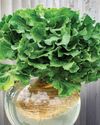
Basics of Hydroponics
Use these top tips and plant picks to have a successful soil-free garden
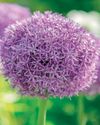
Rooted in Resilience
These hardy perennials will thrive in most zones
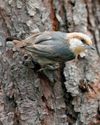
Social and Supportive
Brown-headed nuthatches take a helpful approach to raising their young
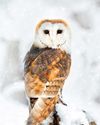
All About Owl Pellets
And why you should give a hoot about them
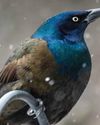
Ask the Experts
Advice from our pros about houseplants, bird feeding and more
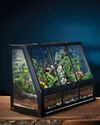
BRING THE OUTDOORS IN
Making a terrarium is about as close as you can get to a Zen DIY project. Once you have gathered the proper materials and squared away your plant selections, it's as simple as layering it all together and watching your mini ecosystem thrive. Here, I'll walk you through my foolproof process and cover all the required elements for good filtration, healthy soil, strong root growth and resistance against fungus and disease.

GROW THIS. NOT THAT
Six easy-to-grow houseplants—and six that may not be the right choice for you

Winter MAGIC
Forecasts may be frigid, but grab your binoculars because birding opportunities are still incredible
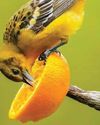
Sense or Nonsense? - Why some birds can taste and smell - but others can't
Does a porcelain berry taste like a blueberry to a gray catbird? Does a block of lard smell like frying bacon to a northern flicker? The short answer is no. While some avian species do have a well-adapted sense of taste or smell, they can't distinguish between flavors and odors the way humans can. They're not picking up every ingredient in the suet you put out, says José Ramírez-Garofalo, an ornithology researcher at Rutgers University in New Jersey and the director of Freshkills Biological Station in Staten Island, New York.
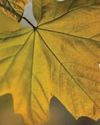
Maple Mania - Amazing facts about this fall foliage mainstay
Amazing facts about this fall foliage mainstay